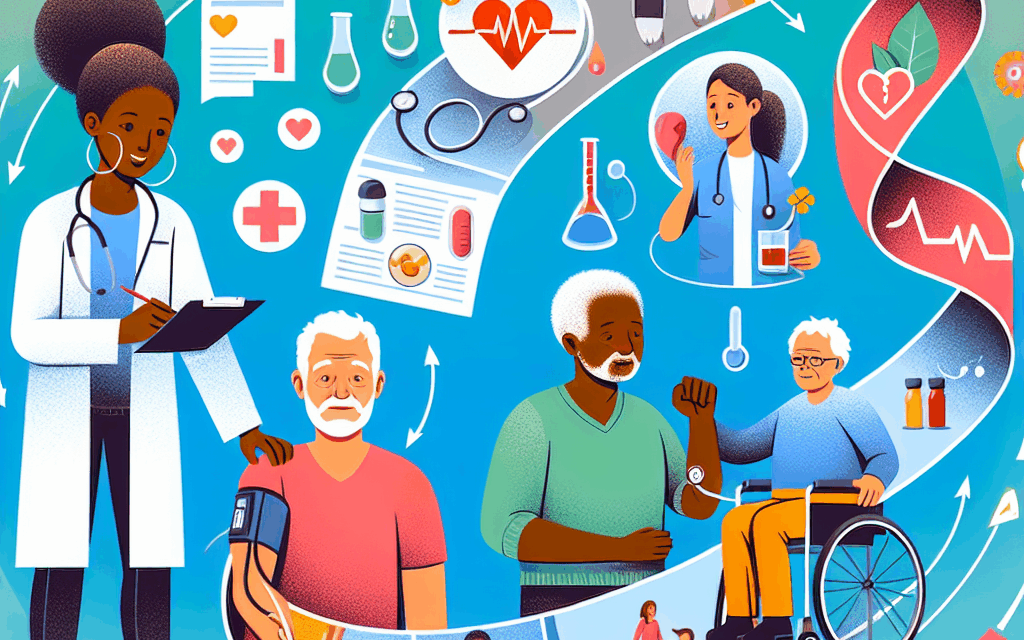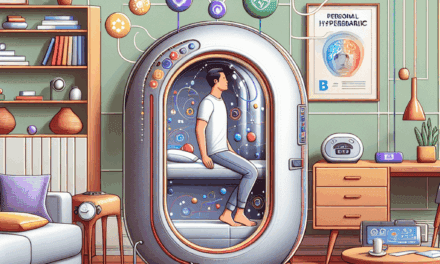The Connection Between Health Screenings and Longevity
In an era where medical advancements and health awareness are at an all-time high, the importance of health screenings cannot be overstated. Regular health screenings are pivotal in identifying potential health issues before they escalate into serious conditions. This article delves into the intricate relationship between health screenings and longevity, exploring how proactive health measures can lead to a longer, healthier life.
Understanding Health Screenings
Health screenings are tests or examinations performed to detect diseases or conditions in individuals who may not yet show symptoms. These screenings can vary widely, from routine blood tests to more specialized procedures like mammograms or colonoscopies. The primary goal of these screenings is early detection, which is crucial for effective treatment and management of health issues.
Health screenings can be categorized into several types:
- Preventive Screenings: These are designed to catch diseases before symptoms appear, such as cholesterol tests, blood pressure checks, and cancer screenings.
- Diagnostic Screenings: These are conducted when a patient shows symptoms or has a family history of a particular condition, such as imaging tests or biopsies.
- Follow-up Screenings: These are performed to monitor existing health conditions or the effectiveness of treatments.
Understanding the types of screenings available is essential for individuals to make informed decisions about their health. The frequency and type of screenings recommended can vary based on age, gender, family history, and lifestyle factors.
The Role of Early Detection in Longevity
One of the most significant benefits of health screenings is the potential for early detection of diseases. Early detection can lead to more effective treatment options, which can significantly improve outcomes and increase longevity. For instance, cancers such as breast, cervical, and colorectal cancer have higher survival rates when detected early.
Statistics support the notion that early detection saves lives:
- According to the American Cancer Society, the 5-year survival rate for localized breast cancer is 99%, compared to just 27% for distant-stage breast cancer.
- The National Cancer Institute reports that early-stage colorectal cancer has a 5-year survival rate of 90%, while late-stage colorectal cancer drops to 14%.
These statistics highlight the importance of regular screenings. For example, mammograms are recommended for women starting at age 40, while colonoscopies are suggested for both men and women starting at age 45. These guidelines are based on extensive research showing that early detection through screenings can lead to better health outcomes.
Moreover, early detection is not limited to cancer. Conditions such as diabetes, hypertension, and high cholesterol can also be identified through routine screenings. Managing these conditions early can prevent complications such as heart disease, stroke, and kidney failure, all of which can significantly impact longevity.
Health Screenings and Chronic Disease Management
Chronic diseases are among the leading causes of death worldwide. Conditions such as heart disease, diabetes, and chronic respiratory diseases account for a significant percentage of mortality rates. Regular health screenings play a crucial role in managing these chronic diseases, allowing for timely interventions that can prolong life.
For instance, individuals diagnosed with hypertension can benefit from regular blood pressure screenings. By monitoring their blood pressure, they can make necessary lifestyle changes or adjust medications to keep their condition under control. Studies have shown that effective management of hypertension can reduce the risk of heart attack and stroke, leading to increased longevity.
Similarly, diabetes management is heavily reliant on regular screenings. The American Diabetes Association recommends annual screenings for individuals aged 45 and older or those with risk factors such as obesity or a family history of diabetes. Early detection allows for lifestyle modifications and medication management that can prevent complications like neuropathy, retinopathy, and cardiovascular disease.
Moreover, chronic disease management through screenings can lead to improved quality of life. Individuals who actively manage their health conditions often experience fewer symptoms and complications, allowing them to maintain a more active and fulfilling lifestyle. This proactive approach not only extends life but enhances the overall quality of those additional years.
The Psychological Impact of Health Screenings
The psychological aspect of health screenings is often overlooked but plays a significant role in overall health and longevity. Regular screenings can provide peace of mind, reducing anxiety about potential health issues. Knowing that one is taking proactive steps towards health can lead to improved mental well-being.
Conversely, the fear of receiving bad news can deter individuals from seeking necessary screenings. This avoidance can lead to late-stage diagnoses and poorer health outcomes. Research indicates that individuals who engage in regular health screenings report lower levels of anxiety and stress related to their health.
Furthermore, the act of participating in health screenings can foster a sense of control over one’s health. This empowerment can lead to healthier lifestyle choices, such as improved diet and increased physical activity, which are crucial for longevity. For example, individuals who regularly monitor their cholesterol levels may be more inclined to adopt heart-healthy habits, such as exercising and eating a balanced diet.
Additionally, support from healthcare providers during screenings can enhance the psychological benefits. A compassionate and informative approach can alleviate fears and encourage individuals to prioritize their health. This supportive environment can lead to increased adherence to screening recommendations and a more proactive approach to health management.
Barriers to Health Screenings and Solutions
Despite the clear benefits of health screenings, several barriers prevent individuals from participating in these vital health measures. Understanding these barriers is essential for developing effective solutions to improve screening rates and, consequently, longevity.
Common barriers include:
- Cost: Many individuals may avoid screenings due to the financial burden, especially if they lack insurance or have high deductibles.
- Lack of Awareness: Some people may not be aware of the importance of screenings or the specific screenings recommended for their age and risk factors.
- Fear and Anxiety: The fear of receiving bad news or undergoing uncomfortable procedures can deter individuals from seeking screenings.
- Access to Healthcare: Geographic barriers, such as living in rural areas with limited healthcare facilities, can hinder access to necessary screenings.
Addressing these barriers requires a multifaceted approach:
- Education and Awareness Campaigns: Public health initiatives can educate individuals about the importance of screenings and the specific tests recommended for their demographic.
- Financial Assistance Programs: Providing financial support or sliding scale fees for low-income individuals can alleviate the cost barrier.
- Telehealth Options: Expanding telehealth services can improve access to healthcare providers, making it easier for individuals to discuss their screening needs.
- Community Outreach: Mobile health clinics and community health fairs can bring screenings directly to underserved populations, increasing participation rates.
By addressing these barriers, we can improve health screening rates, leading to earlier detection of diseases and ultimately enhancing longevity.
Conclusion
The connection between health screenings and longevity is clear. Regular health screenings play a crucial role in early detection, chronic disease management, psychological well-being, and overall health maintenance. By identifying potential health issues before they escalate, individuals can take proactive steps to manage their health, leading to longer and healthier lives.
As we continue to advance in medical technology and health awareness, it is imperative that we prioritize health screenings as a fundamental aspect of healthcare. By overcoming barriers to access and increasing awareness of the importance of screenings, we can empower individuals to take charge of their health and enhance their longevity.
In summary, the benefits of health screenings extend far beyond mere detection of diseases; they encompass a holistic approach to health that includes physical, mental, and emotional well-being. By embracing regular health screenings, we can pave the way for a healthier future for ourselves and our communities.





